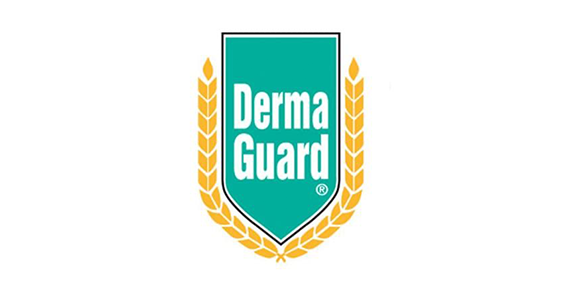Derma Guard for Contact Dermatitis
Dermatitis can affect anyone, in any region of the body, at any age. Often, an outbreak can occur precipitously without any obvious reason.
The first thing to understand is that there is no single cause of dermatitis. However, it is generally accepted that around 80% of dermatitis cases result from skin contact with irritants.
Contact Dermatitis
Contact dermatitis is a skin inflammation condition that may result in symptoms of redness or rashes, swelling and itchiness. Sometimes, the skin becomes dry and flaky and then may deteriorate, leading to lesions, open oozing sores, blistering and scarring.
Contact dermatitis occurs because the skin has been exposed to an irritant that prompts an allergic reaction.
A vast array of natural and artificial allergens can trigger contact dermatitis. Some of the more common culprits are ingredients found in soaps, shampoos, perfumes, cosmetics, antibiotic creams, household cleaners, laundry detergents, fabric conditioners, garden products, industrial solvents and glues.
Some objects that are handled in the normal course of the day may also be responsible for triggering contact dermatitis. Jewellery, metal — particularly nickel, rubber and an assortment of plants are all known to produce symptoms.
If you are suffering from contact dermatitis, you will need to treat the symptoms and also identify what substances you are allergic to. Of course, you should aim to eliminate or minimize contact with the allergen to reduce the probability of further outbreaks. In most incidences, once a person has become sensitised to an allergen, they are likely to be sensitive to that substance for the remainder of their life.
In a minority of cases, dermatitis may be a result of genetic makeup or adverse environmental factors. In these incidences, stress, age and gender can all play a role.
Treating Dermatitis
Derma Guard helps combat the symptoms and causes of contact dermatitis in a number of ways.
Firstly, Derma guard treats any existing contact dermatitis symptoms with its superior grade moisturisers and skin nutrients.
Secondly, its antipruritic qualities can help soothe irritation, reducing the urge to scratch and thus help protect against further skin damage.
Further, once applied, Derma Guard bonds to your skin producing a microscopic, non-greasy, breathable barrier that prevents irritants from coming into direct contact with your skin’s surface.
In addition, Derma Guard is non-toxic and can safely be used on any area of your body. Being fragrance-free and laboratory tested, will not exacerbate any existing condition.




















